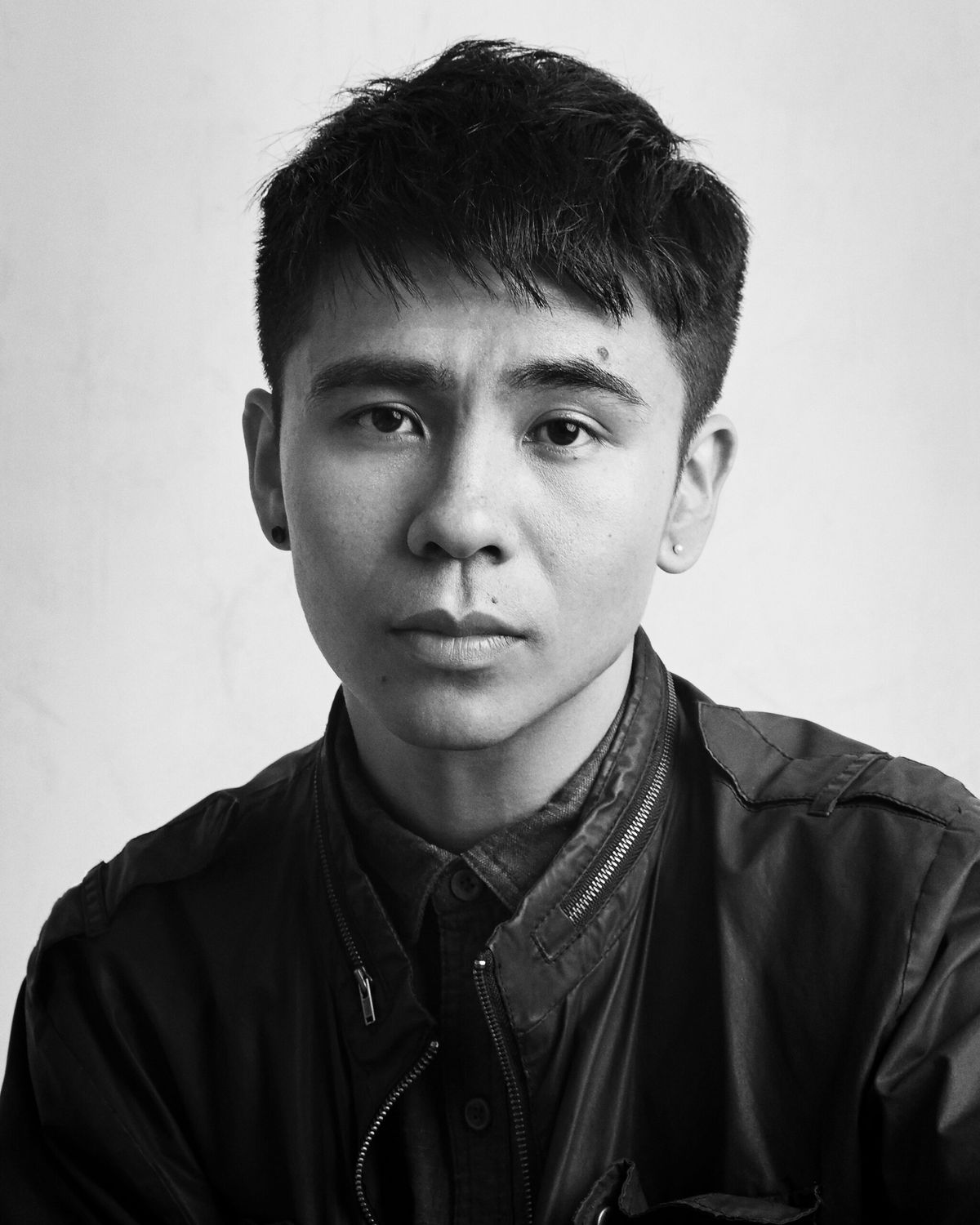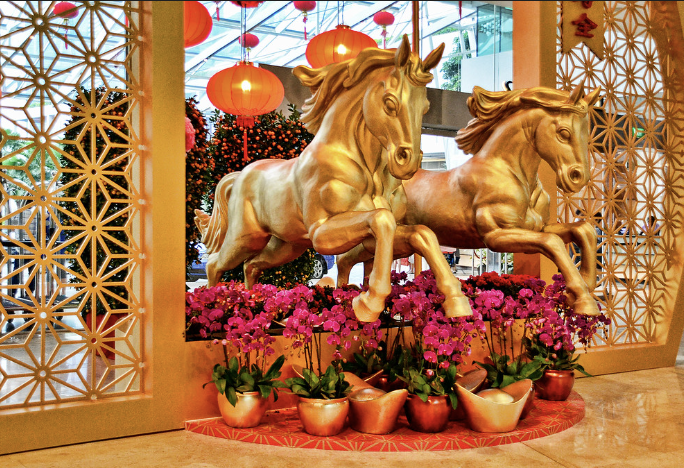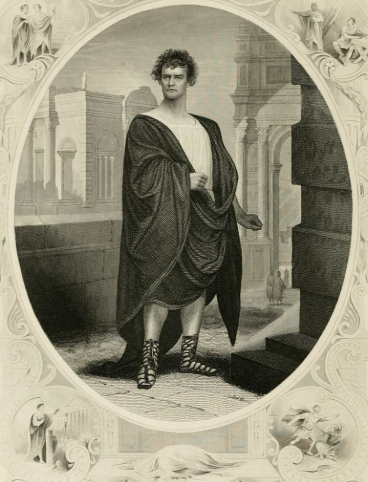Life(-giving) Sentences: Movement Through Intimacy

As part of the Visiting Writers Series at UMass Amherst, poet and writer Ocean Vuong came to the university’s Fine Arts Center on Thursday night to read from his debut novel “On Earth We’re Briefly Gorgeous.” As the audience streamed into the massive hall, the air fluttered with excitement. But as Vuong came to the podium and prepared to speak, his small frame jutting out against the expansive stage, everything grew still. His voice was smooth as stone — its sound touched me before his words did.
He began by thanking us for the warm welcome — “I’ve always called New England home,” he said. Vuong grew up in Hartford, Connecticut after moving from Ho Chi Minh City at age two. Although Vuong’s novel is a work of fiction, the story is told from the perspective of Little Dog, who, like Vuong, is raised by his mother and grandmother in a beautiful and broken Hartford. “On Earth” is a letter from a son to his mother, a letter which will never be read because of her illliteracy: “…the very impossibility of your reading this is all that makes my telling possible,” Little Dog muses.
Vuong’s smooth voice broke as he talked about losing his mother to cancer just a couple of weeks prior. He described feeling immense grief, sadness and anger after her death. But he went on to emphasize: “When I’m most useful to myself is when I ask myself what I can do after these great epicenters, these great big rifts in our lives.”
The aftermath of anger is care, he noted, asking, what happens when we have to “get up off the floor? How do we write using care?”
He shared the precious gift of three new poems with the audience, slowly releasing each word into the air with his melodic breaths. The third poem, “American Legend,” was about a boy and his father in their car, driving somewhere to put their dog down. The boy swerves and as the car twists in an act of destruction, their bodies fly into contact — and it is the first time the pair experience being intertwined in an embrace.
Moving onto reading two excerpts from his novel, Vuong noted that the great opportunity of framing a book in the first person is the ability to use “I” as a searchlight. The “I” becomes a way to focus inward on Little Dog while also burrowing into the gorgeous and war-torn lives of his mother, Rose and his grandmother Lan. Throughout “On Earth” the three figures bloom into one another in their shared traumas.
Vuong first read from the scene in which Little Dog’s mother and grandmother take him on a car ride, Rose frantic at the prospect that Mai, her sister, will be beaten to death by her husband and Lan rocking side to side in a dreamy haze. Rose storms her sister’s house, only to be confronted by a stranger with a gun. “But Mai has not lived here for five years,” Lan gently says to her daughter, pulled out of her trance.
In addition to being an immigrant story about love and relationships, “On Earth” is also an ode to drug-addled, survival-breeding Hartford — Vuong allowed us a glimpse of its beauty, grime and depth as he described Little Dog and his first love, Trevor, riding their bikes along the Connecticut River as night breaks into itself and the city starts to light up. The softness of his voice permeated the hall.
In the Q&A portion Vuong allowed us more precious glimpses into his aspirations as a writer and scholar. When asked who he pictures as his ideal reader, Vuong responded that it would be “incredibly foolish” of him to “presume any kind of reader.” For him, the urgent question is: am I satisfying my curiosity as a person? “I have this perhaps naïve faith that if we enter a writing project privileging the great mystery of being alive — to ask ‘now what?’ — the great hope is that anyone who touches this will recognize their own impending desire to know what this is all about,” he explained.
I once had an English professor whose favorite phrase to read was “and yet…” Vuong’s “Now what?” feels similar to me. They are both continuations, prolonging a moment into another moment. “As long as we are alive, there is no true last word,” Vuong emphasized. There is always another “and yet…,” always another “now what?” He noted that the majority of his writing consists of reading and interrogating tradition; the opportunity of being alive in the first place, for Vuong, is that we get to say, “How do I innovate from that foundation?”
How do we interrogate what is here but also what is gone in order to prolong and continue into what can and will be? The answer seems to be closeness. In an interview with The New York Times, Vuong talked about how his novel uses a narrative structure called kishōtenketsu, “a form that refuses to deploy conflict as a means of progressing the story.”
“Proximity builds tension,” according to Vuong. Tension builds in other ways too: “On Earth” centers a queer love story. The passage that continued to stay with me days after consuming this novel is one where Little Dog describes to his mother the wholeness he feels when he is with Trevor.
“Did you ever feel colored-in when a body found you with his mouth?” he asks her. “What if the body, at its best, is only a longing for body? The blood racing to the heart only to be sent back out, filling the routes, the once empty channels, the miles it takes to take us toward each other. Why did I feel more myself while reaching for him, my hand midair, than I did having touched him?”
The possibility that Little Dog holds here reminds me of Vuong’s “now what?” This energized movement that holds us together while extending ourselves outward. Like an ink droplet that bursts onto a page and spreads, staining the paper with its jagged paths. The possibility of expanding yourself, chest taut with air. The simple potential of touching someone else. It is not the literal act of touching which allows us to fully occupy our bodies but rather the act of reaching out, our hands extended and our blood flowing.
Perhaps we may never even touch what we are reaching for. But there is something beautiful in the movement — it allows us to be more ourselves, reminds us of the body’s capability to long, fills untouched spaces in ourselves with vibrating color.
This act seems to allow us to fully be our bodies and also to spill out of our cold, stifling frames. It prolongs us. It is an assertion — a statement by the body that it still exists, and it will continue to exist. So we extend outward, gratified by our longing for touch and surprised by our longing for tomorrow, feeling less lost inside ourselves, this act of charged movement that holds all the possibilities in the world.
The intimate act of reaching drives “On Earth We’re Briefly Gorgeous.” A boy reaches for his lover. A grandson reaches for his history. A son reaches for understanding. Vuong writes sentences which both give life and take it away, crafting a world where pain is consumed and blossomed around.
In an Instagram tribute to his late mother, Vuong wrote this: “what can a son say to the great loss from which he owes his own life? only that my world has changed forever. it can never be what is was. it is absolutely less — and yet perennially more because of what you have given me, Ma. you taught me that our pain is not our destiny‚ but our reason. you gave me all the reasons. thank you. i bow to you. i will see you again. every word was always for you. every sentence a life (-giving) sentence.”




Comments ()